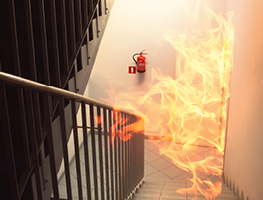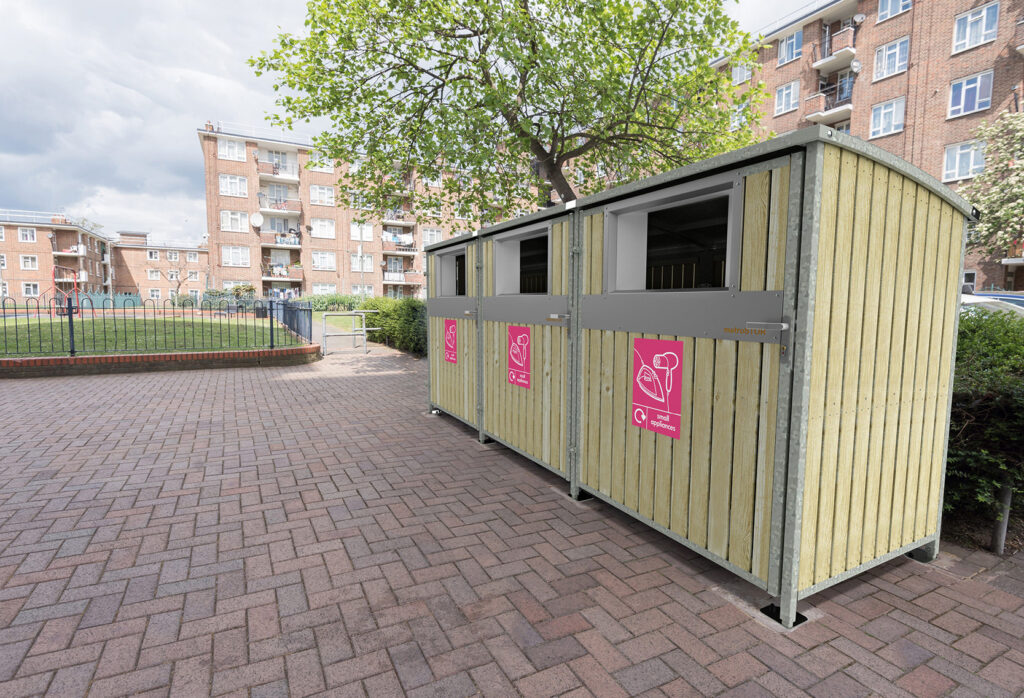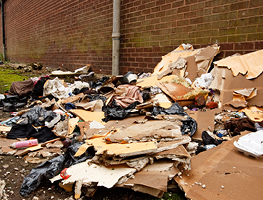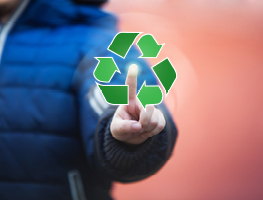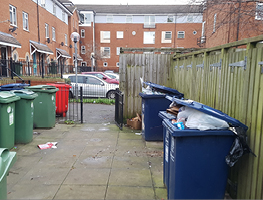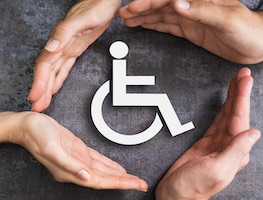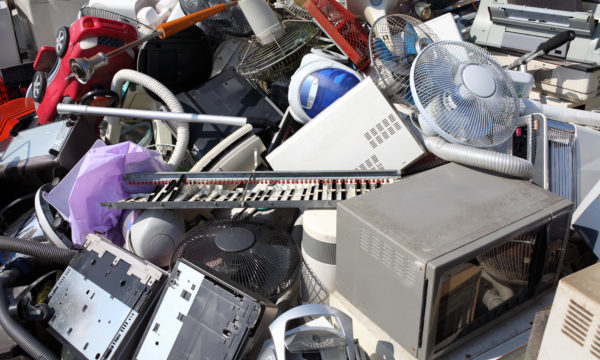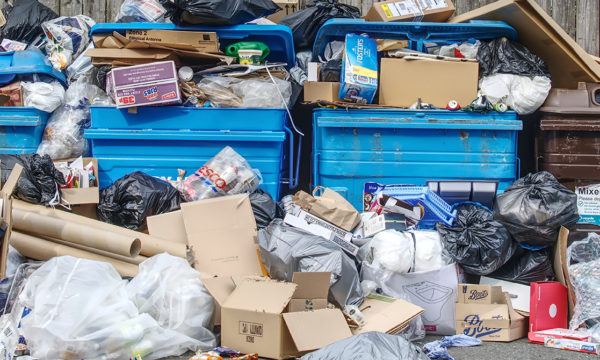Easing the collection of electronic equipment, devices and white goods, the UK Government announced new UK-wide plans on the 28th December 2023 for the in-store drop-off and kerbside collection of small electronic items. Retailers will now be required to finance consumers’ e-waste recycling from 2026.
metroSTOR takes a look into the impact of Waste Electrical and Electronic Equipment (WEEE), what these changes will mean for producers and retailers of electronic goods, and how providing UK households with improved access to WEEE recycling will help facilitate the transition to a circular economy.
WEEE and Its Environmental Impact
WEEE is the fastest growing waste stream in the UK. Alarming statistics revealed in a Government consultation report revealed an estimated 155,000 tonnes of smaller household electronics are incorrectly disposed of each year. Research has also shown there are close to 21m unused but working electrical products “hoarded” in households.
A combination of throwaway culture and the integration of electrical products into almost every aspect of modern life has ultimately developed WEEE into a significant environmental concern. Most electrical devices contain toxic substances including mercury, nickel, zinc, lead, cadmium, and barium, among others. Disposal of these items means they end up in landfill sites and can potentially run into soil and groundwater. A wide variety of electronic goods also contain valuable materials, such as copper, lithium, silver and platinum. Lithium, in particular, is considered an integral aspect of the net-zero transition, and hoarding or disposal of these items therefore restricts our ability to extract the valuable resources contained inside.
One of the most commonly discarded items containing lithium are vaping products. Over 1m vapes are said to be thrown away every week, with the estimated annual cost of collecting and separating vapes from general waste streams for recycling around £200m. Vaping products have also been linked to a surge in fires in dustcarts and Household Waste Recycling Centres (HWRCs), with 700 incidents recorded in the UK in 2022.
Government Collection Targets and the New Proposals
In 2022, DEFRA set an overall collection target for WEEE of 511,376 tonnes. The final figures showed a total 467,517 tonnes was collected, representing a 9% deficit with only 3 categories reaching their target. For 2023, the new target was set at 471, 942 tonnes, representing a 1% increase from 2022 collection totals.
While the total collection figures for 2023 are yet to be released, DEFRA published data on the 1st September that shows 239,458 tonnes of household WEEE was collected in the first half of 2023, reaching 50.7% of the overall target for 2023. These statistics demonstrate that the UK was on track to hit its target for the year.
Seeking to continually improve on these statistics and divert more WEEE from landfill in 2024, a range of measures have been proposed as part of a joint initiative by the UK Government, Scottish Government, Welsh Government and Northern Ireland Executive consultation. These are scheduled for introduction in 2026, and include:
- Kerbside collections of WEEE from UK households. These will be financed by the producers of electrical items, and reduce requirements for households to travel to distant disposal points.
- Major retailers establishing in-store drop-off points for electrical items.
- Retailers and producers taking responsibility for collecting unwanted or broken large electrical items when delivering a replacement.
Statistics provided by DEFRA state that around 75% of adults in the UK say they would recycle WEEE items at their local supermarket or retailer if the service was available to them, while over 77% of households would regard the retailer as more environmentally responsible if they were offered a recycling service.
Financed by the producers of electrical items, these proposals will enable consumers to effectively recycle WEEE during their weekly shop or without leaving their property. The changes proposed will also ensure suppliers of vapes and electronic cigarettes will finance the cost of separate collections and treatment of their products. DEFRA has also stated it will work closely with manufacturers and retailers of electrical items as part of an initial consultation period, ensuring the most efficient and accessible options are able to be implemented effectively.
Challenges for Communal Properties and metroSTOR Solutions
While the UK Government has stated the proposed kerbside collection service won’t necessarily require any further bins, the exact criteria for the service is yet to be confirmed.
Looking at the example of existing kerbside collection services for waste & recycling, participation is easily achievable for households with plenty of storage space outside their property, however, for communal properties and flats above shops with a lack of secure external space for short-term storage, the same service can be restrictive.
In densely populated urban areas, a kerbside collection service can also raise issues when residents are required to properly segregate their waste beforehand, as lack of internal space can make it difficult to store separate waste streams. The obvious alternative for these residents are the in-store drop-off points for electrical items, however, for some households the nearest store with this service might be located several miles away. For those without regular access to a vehicle, this can be extremely hindering, and the likelihood of disposing of WEEE in regular waste streams is increased.
To simplify WEEE recycling for these households, metroSTOR has developed a WEEE specific aperture that is compatible with our existing range of metroSTOR PBM Bin Storage Housings. Facilitating the separation of small to medium-sized items within the housing, e-waste can then be collected and transferred to a local HWRC. The aperture can be integrated alongside corresponding waste and recycling apertures to deliver a complete waste management system. Battery collection boxes can also be integrated to any metroSTOR communal bin housing, encouraging easily accessible disposal points in communal waste facilities, as well as reducing fire risks by ensuring batteries are correctly recycled.
